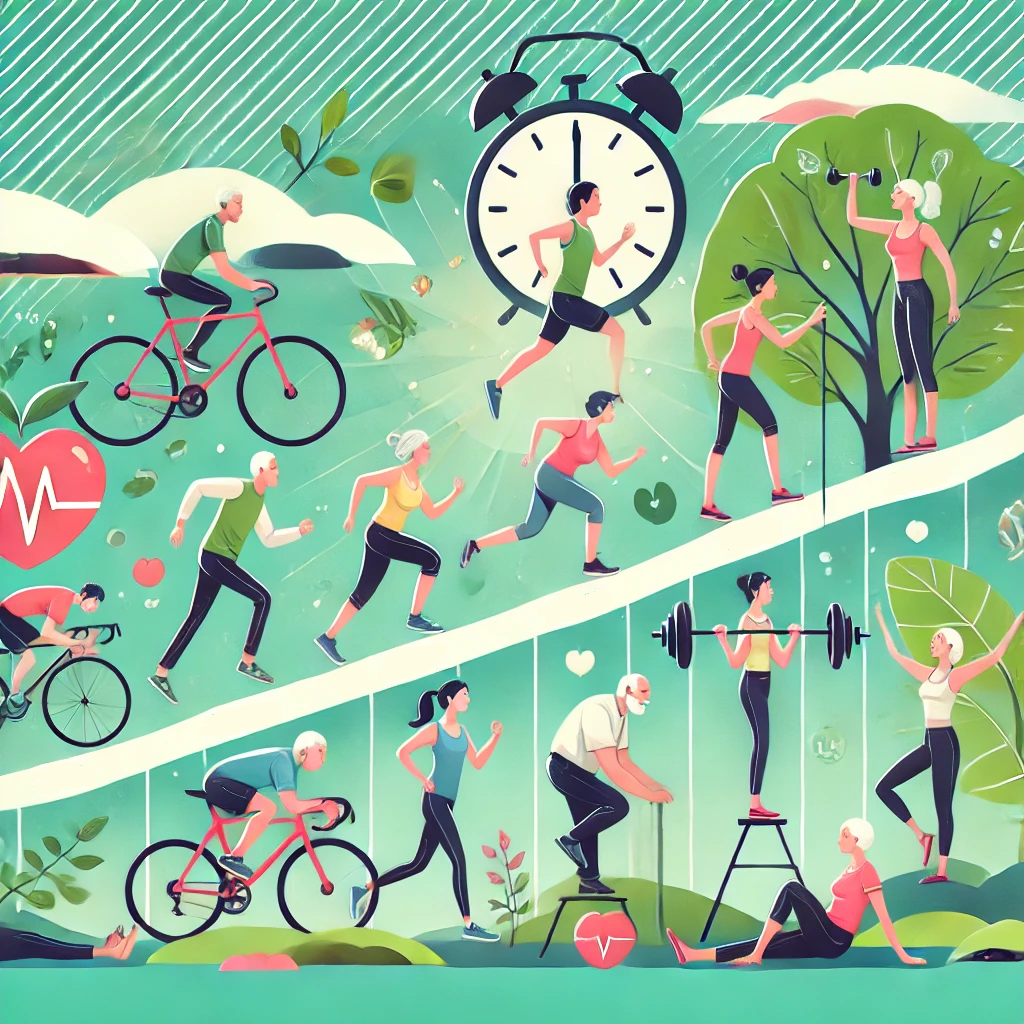How Does Exercise Affect Lifespan?
From the research paper "Association of All-Cause Mortality With Overweight and Obesity Using Standard Body Mass Index Categories" Read Full Article

Why You Should Care
Exercise is more than just a way to stay fit – it’s a key factor in living a longer, healthier life. Regular physical activity can lower your risk of many chronic diseases, boost your mental health, and improve your overall quality of life. Understanding how exercise affects lifespan can help motivate you to incorporate more movement into your daily routine.
Answering the Question: How Does Exercise Affect Lifespan?
From a researcher's perspective, exercise significantly impacts lifespan by reducing the risk of chronic diseases, enhancing mental health, and improving physical fitness. Studies show that regular physical activity can lower the risk of death by 30% for people who engage in moderate exercise, such as brisk walking, for 150 minutes per week. Another study indicated that people who exercise for at least 450 minutes per week live 4.5 years longer on average than those who do not exercise.
How Was the Study Done?
Researchers conducted a comprehensive analysis of multiple studies involving thousands of participants. They tracked exercise habits, health outcomes, and mortality rates over several years. Participants were categorized based on their activity levels, from sedentary to highly active. Data was collected through surveys, medical exams, and follow-up health assessments to determine the impact of exercise on lifespan.
What Was Discovered?
- Reduced Mortality Risk: Regular exercise lowers the risk of death by 30% for those engaging in 150 minutes of moderate activity per week.
- Chronic Disease Prevention: Physical activity reduces the risk of heart disease by 40%, stroke by 27%, type 2 diabetes by 50%, and certain cancers by 30-50%.
- Mental Health Benefits: Exercise can decrease symptoms of depression and anxiety by 20-30%, enhancing overall mental well-being.
- Improved Quality of Life: Regular physical activity leads to better sleep, increased energy levels, and enhanced physical fitness. Approximately 70% of active individuals report higher satisfaction with their lives.
- Longevity Boost: Individuals who exercise regularly live on average 3-5 years longer than those who are inactive.
- Weight Management: Exercise helps maintain a healthy weight, reducing obesity-related health risks. Active individuals are 50% less likely to become obese.
- Enhanced Mobility: Physical activity improves strength and balance, reducing the risk of falls by 30% and mobility issues in older adults.
Why Does It Matter?
Understanding the benefits of exercise on lifespan highlights the importance of incorporating physical activity into daily life. It’s not just about living longer, but living better.
Regular exercise can lead to a healthier, more fulfilling life by preventing chronic diseases, improving mental health, and enhancing overall well-being. Encouraging people to stay active can significantly impact public health, reducing healthcare costs and improving quality of life for millions.
Exercise is a powerful tool for extending and enhancing life. By staying active, you can enjoy more years of good health and vitality.
Reference:
- Association of All-Cause Mortality With Overweight and Obesity Using Standard Body Mass Index Categories. Read Full Article
